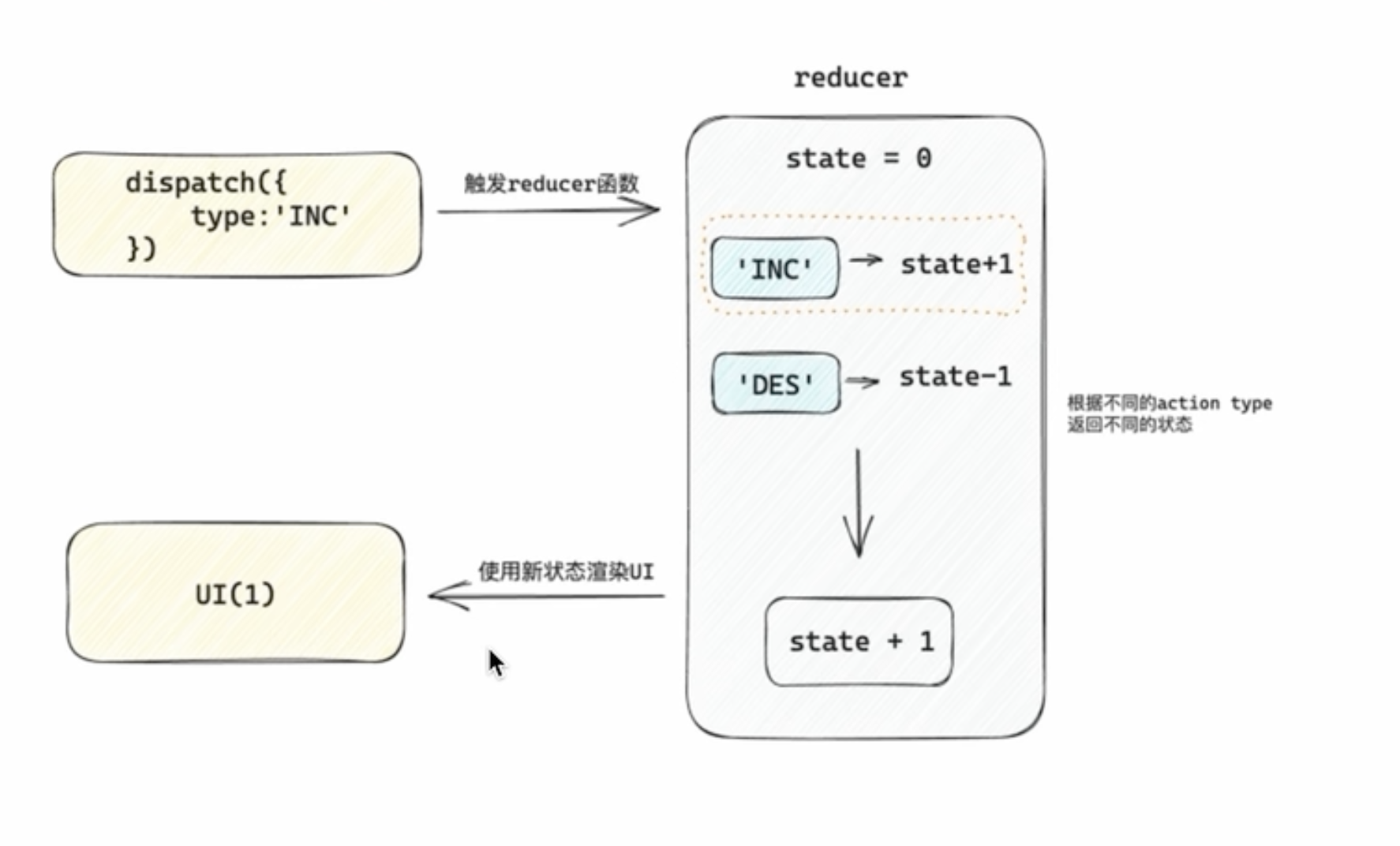React useReducer Hook
- Define a reducer function that returns a new state based on different actions.
JSX
function reducer(state, action){
// based on different action type return new state
switch(action.type){
case 'INC':
return state + 1;
case 'DEC':
return state - 1;
default:
return state
}
}- Call
useReducerin a component, passing in the reducer function and the initial state value.
JSX
const [state, dispatch] = useReducer(reducer, 0);3.When an event occurs, dispatch an action object through the dispatch function to notify the reducer which new state to return and to render the UI.
JSX
dispatch({type: 'INC'})Certainly! Below is an explanation of useReducer in React, formatted as Markdown.
markdown
# Understanding useReducer in React
React's `useReducer` hook is a powerful alternative to `useState`, especially useful for managing more complex state logic in your components. It allows you to manage the state of your application through a reducer function, making state updates more predictable and organized.
## What is useReducer?
`useReducer` is a hook that is used for state management in React applications. It is particularly useful when the next state depends on the previous one or when the state logic is complex.
```jsx
const [state, dispatch] = useReducer(reducer, initialState);
```staterefers to the current state of the component.dispatchis a method that allows you to trigger state updates.reduceris a function that determines how the state should change based on actions.initialStateis the initial value of the state.
When to Use useReducer
- When managing local state of complex components.
- When the next state depends on the previous one.
- For state logic that involves multiple sub-values or when the next state is influenced by another state.
Example
Consider a simple counter application:
jsx
import React, { useReducer } from 'react';
function reducer(state, action) {
switch (action.type) {
case 'increment':
return { count: state.count + 1 };
case 'decrement':
return { count: state.count - 1 };
default:
throw new Error();
}
}
function Counter() {
const [state, dispatch] = useReducer(reducer, { count: 0 });
return (
<>
Count: {state.count}
<button onClick={() => dispatch({ type: 'decrement' })}>-</button>
<button onClick={() => dispatch({ type: 'increment' })}>+</button>
</>
);
}In this example:
- The
reducerfunction handles how actions like 'increment' and 'decrement' update the state. - The
dispatchfunction is used to send actions to thereducerto update the state.
Benefits of useReducer
- Offers a more predictable state management pattern compared to
useState. - Simplifies the state management logic by centralizing it in one place.
- Makes testing easier since the reducer function can be tested independently of the component.
- Facilitates optimization of performance-sensitive components.
Conclusion
useReducer is a versatile hook that helps manage complex state logic in a predictable manner. It is particularly useful in scenarios where the state is complex or depends on previous states, providing a clear and maintainable way to handle state updates.

Contributors
No contributors